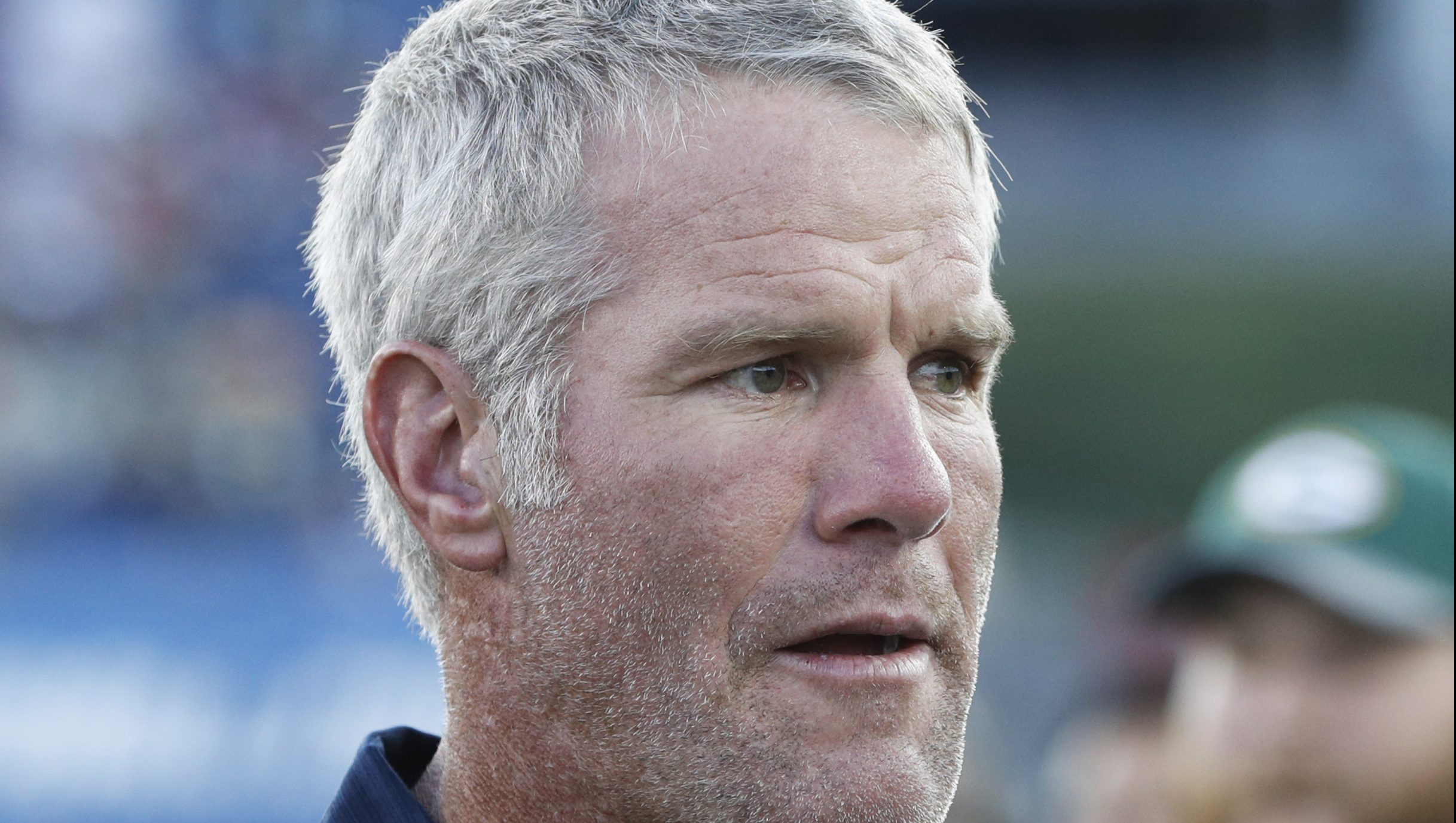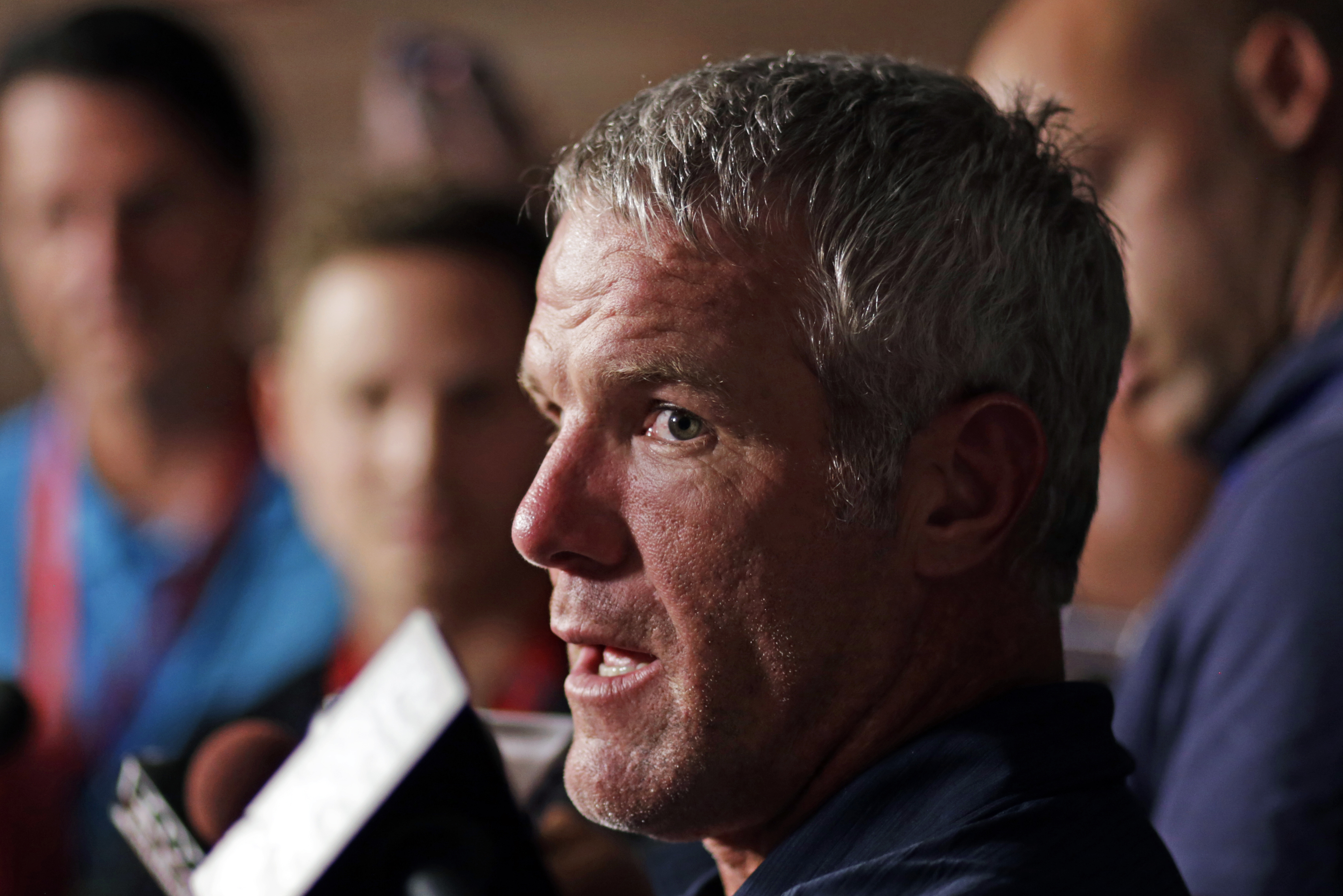
A federal judge on Monday dismissed Brett Favre’s defamation lawsuit against fellow retired NFL player Shannon Sharpe, ruling that Sharpe used constitutionally protected speech on a sports broadcast when he criticized Favre's connection to a welfare misspending case in Mississippi.
U.S. District Judge Keith Starrett ruled that Sharpe, a former tight end, was using “rhetorical hyperbole” in saying on air that Favre was “taking from the underserved," that the former quarterback “stole money from people that really needed that money” and that someone would have to be a sorry person “to steal from the lowest of the low.”
Favre sued Sharpe in February, saying that the fellow Pro Football Hall of Fame member made “egregiously false” statements about him on the Fox Sports talk show “Skip and Shannon: Undisputed." The case was moved to federal court in March, and Sharpe left the sports show in June.
Discussion of Mississippi welfare spending on “Undisputed” took place after extensive news coverage about allegations of Mississippi's largest public corruption case.
Get top local stories in Connecticut delivered to you every morning. >Sign up for NBC Connecticut's News Headlines newsletter.
Mississippi Auditor Shad White has said that from 2016 to 2019, the Mississippi Department of Human Services misspent more than $77 million from the Temporary Assistance for Needy Families program — money that was intended to help some of the poorest people in the U.S.
Prosecutors have said the department gave money to nonprofit organizations that spent it on projects favored by wealthy and well-connected people, such as a $5 million volleyball facility at the University of Southern Mississippi, a project for which Favre agreed to raise money.
Starrett wrote in his ruling Monday that Sharpe's references to “taking” and “stole” referred to diverting TANF money “for purposes other than helping the underprivileged.”
“Similarly, Sharpe’s use of the words ‘people that really needed that money,’ the ‘lowest of the low,’ and ‘the underserved,’ again are examples of protected, colorful speech referring to needy families in Mississippi,” the judge wrote.
“Here, no reasonable person listening to the Broadcast would think that Favre actually went into the homes of poor people and took their money — that he committed the crime of theft/larceny against any particular poor person in Mississippi,” Starrett wrote.
Monday night on X, formerly known as Twitter, Sharpe noted the dismissal of the lawsuit and thanked his legal team for handling the case.
The Associated Press sent an email to Favre attorney Michael Shemper late Monday to seek comment about the dismissal of the lawsuit.
Favre is not facing criminal charges, but he is among more than three dozen people or businesses the state is suing to try to recover misspent welfare money.
In addition to suing Sharpe, Favre filed defamation lawsuits earlier this year against White, the auditor, and sportscaster Pat McAfee, who is a former NFL punter. Favre ended his lawsuit against McAfee in May, after McAfee apologized for on-air statements that Favre had been “stealing from poor people in Mississippi.” Favre's lawsuit against White is still pending.
Favre has repaid $1.1 million he received for speaking fees from a nonprofit group that spent TANF money with approval from the Mississippi Department of Human Services. White said Favre never showed up to give the speeches.
In December, the department made a new demand of up to $5 million against Favre and a university sports foundation, saying welfare money was improperly used to pay for a volleyball arena at Favre’s alma mater, the University of Southern Mississippi.
Favre’s daughter started playing volleyball at the university in 2017. Filings in the state’s civil lawsuit show text message exchanges between Favre and others about directing money to the volleyball facility from a nonprofit organization that had Department of Human Services contracts.



